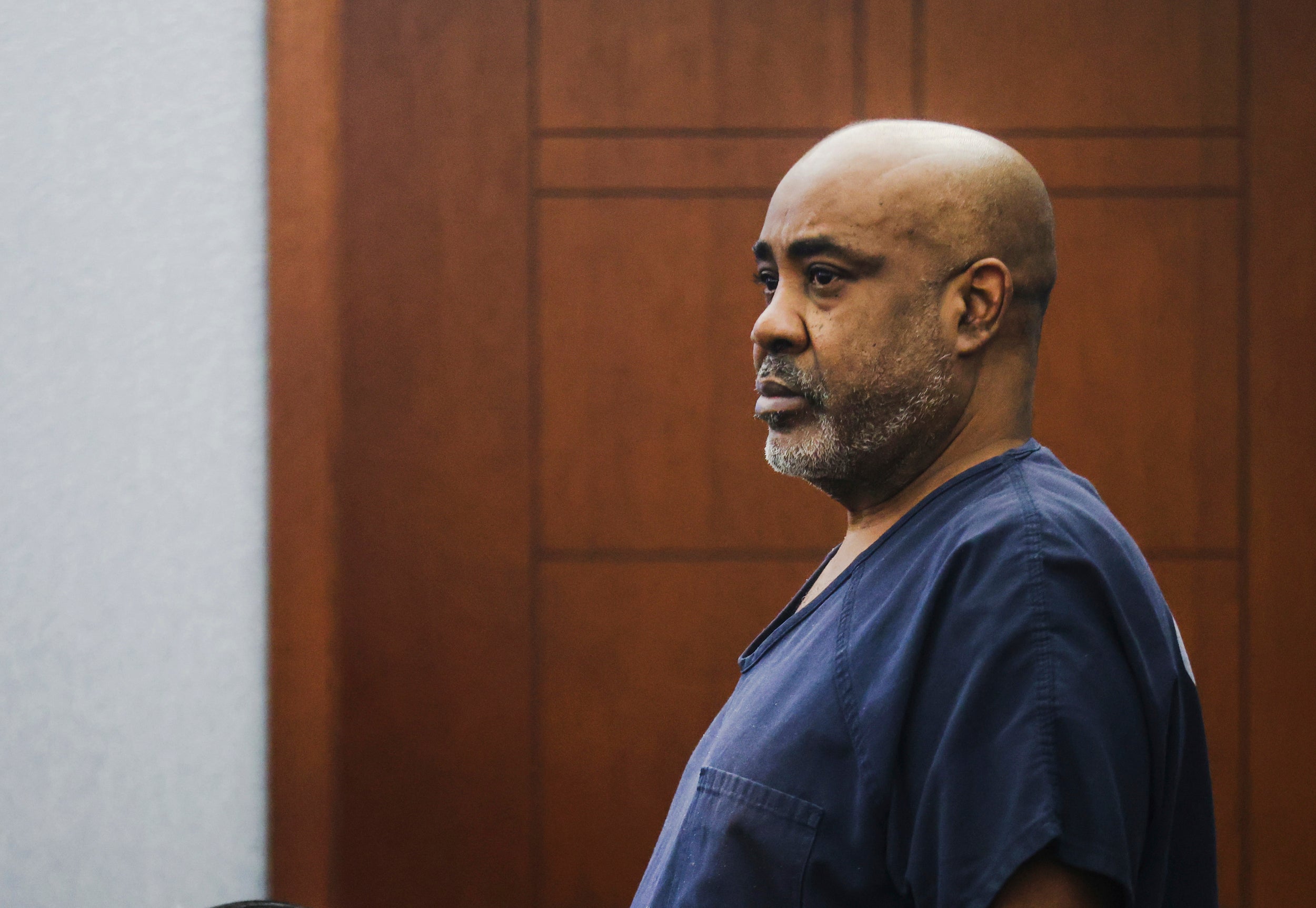Tupac Shakur murder suspect’s trial delayed
The trial of suspect in rapper’s 1996 murder was originally set for 3 June
Duane “Keffe D” Davis, a former Los Angeles-area gang leader who has been charged in the 1996 murder of rap icon Tupac Shakur, will now face trial in November after switching attorneys.
Mr Davis was arrested outside Las Vegas last year after he wrote a book detailing the night Shakur was murdered. He noted in the book that while his nephew allegedly fired the fatal shots, he was allegedly in the car and claims to have provided the murder weapon.
He is the only individual thought to be involved in Shakur's murder who is still alive to face trial.
On Tuesday, Mr Davis attended a brief hearing during which his new attorney, Carl Arnold, requested the trial date moved to early November to allow him time to review evidence and prepare his case.
The presiding judge and the prosecution agreed to the move. The trial was initially set for 3 June, but has been moved to 4 November, according to local broadcaster KTNV.
In January, a judge ruled that Mr Davis may be eligible for house arrest if he pays $750,000 in bail, so long as the money collected for the bail comes from legal sources.
If Mr Davis uses a bail bonds company, he will need to come up with at least $75,000 to make bail.

Prior to the January ruling, Mr Arnold argued that Mr Davis should be released from pre-custody trial due to his age and his health. Mr Davis, 60, is currently battling cancer.
Following the hearing, Mr Arnold told reporters he is confident his client will be able to come up with the bail money to secure his release from custody.
He also insisted on his client's innocence, arguing that Mr Davis's apparent confession in his book was a fiction constructed to boost its sales.
"There's no evidence that [Mr Davis] was involved," Mr Arnold said. "He put out a book, and he made money. I mean even the state's main investigator that testified at the grand jury said this is all about making money, and that's why he put out the book."

